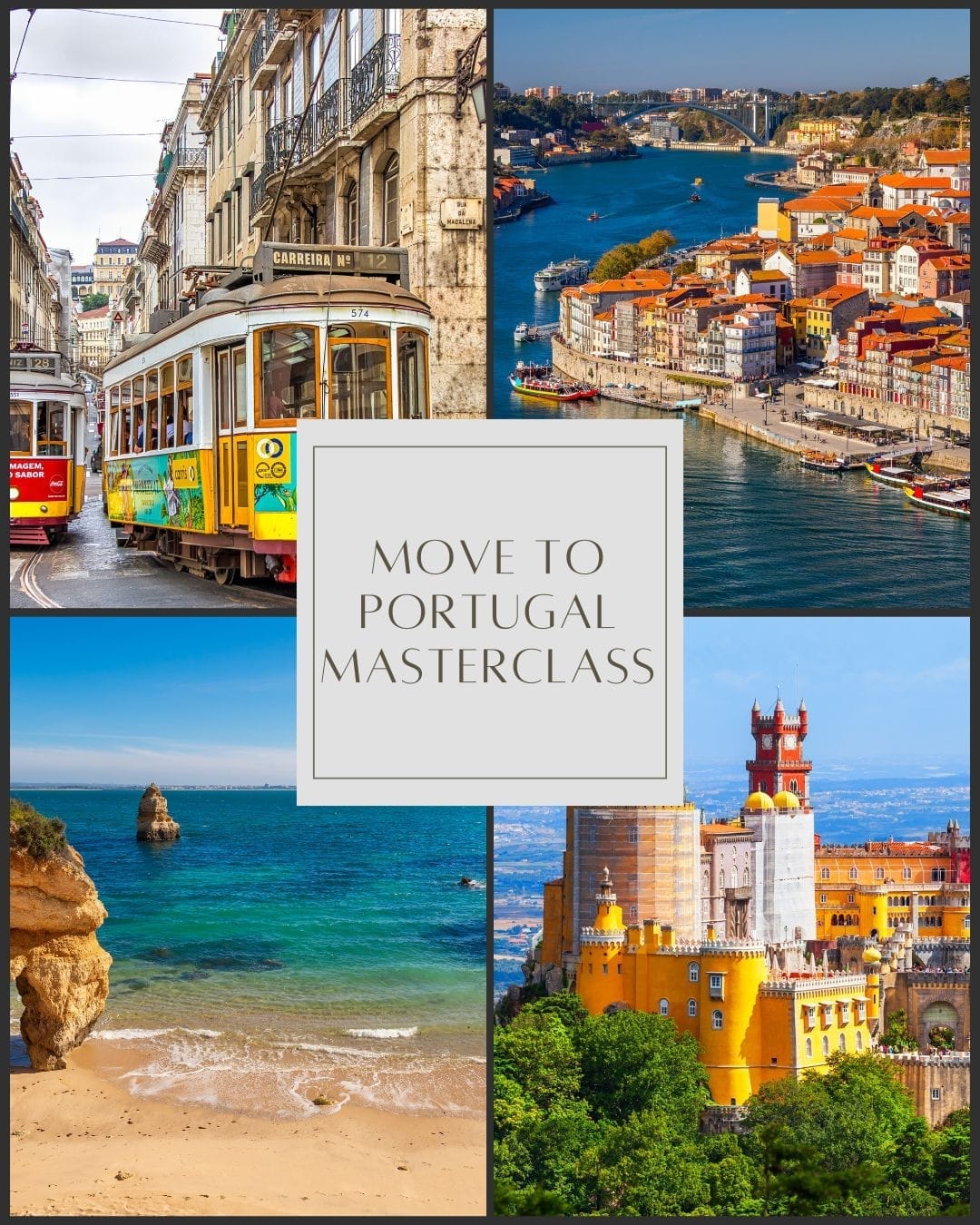
Winter in the Algarve: Why Portugal's South Coast Is the Perfect Off-Season Productivity Retreat
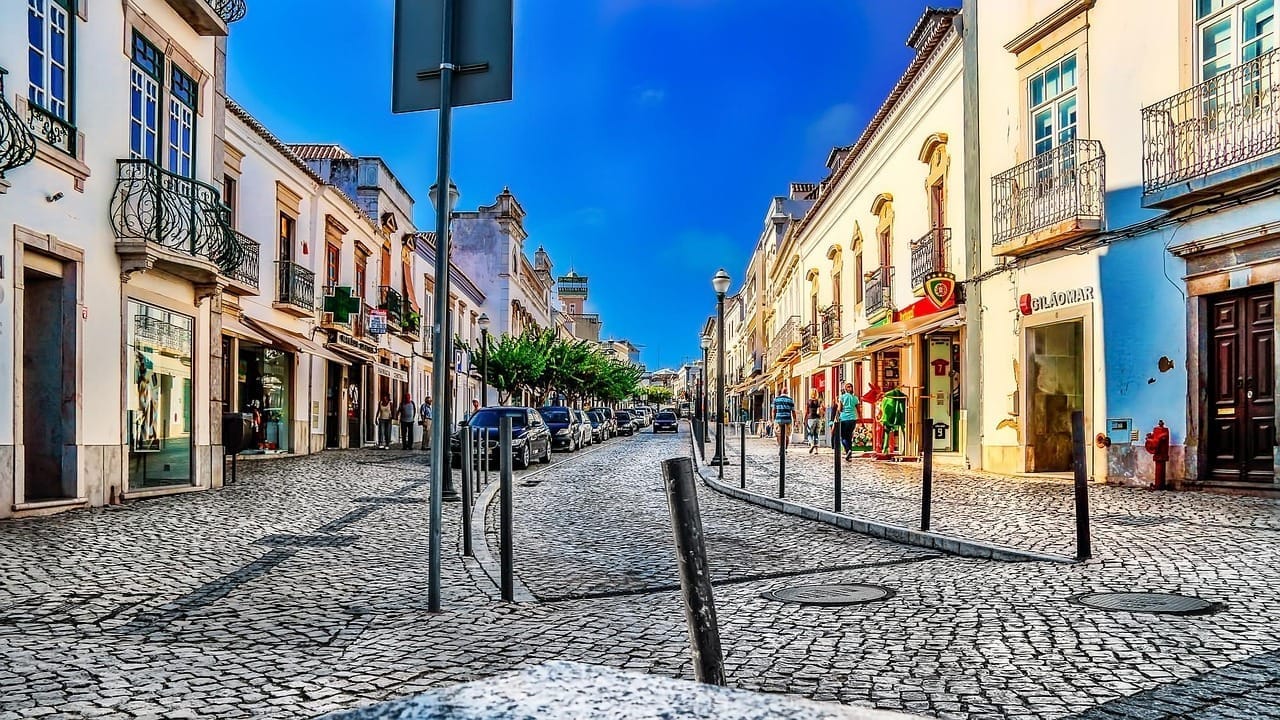
As someone who's spent the better part of a decade building remote businesses from various corners of the world, I've learned that location isn't just about where you are; it's about when you are. Being in the right place at the right time can transform your productivity, creativity, and overall quality of life. That's why I'm writing this from a sun-drenched café terrace in Lagos, Portugal, in the middle of November, while most of Europe shivers through another gray winter.
The Algarve in winter is one of those rare discoveries that fundamentally changes how you think about work-life integration. It's not just a pleasant escape—it's a strategic advantage for entrepreneurs, remote workers, and anyone who values both productivity and well-being.
The Climate Advantage: 300 Days of Sunshine
Let's start with the obvious: the weather. While Stockholm, London, and Berlin languish under gray skies with average temperatures hovering around 2-5°C (36-41°F), the Algarve maintains a remarkably pleasant 15-18°C (59-64°F) during winter months. More importantly, you'll enjoy approximately 6 hours of sunshine daily, even in December and January.
This isn't just about comfort, though that matters. Multiple studies have demonstrated the connection between natural light exposure and cognitive performance. Seasonal Affective Disorder affects an estimated 10 million Americans and countless Europeans, but the Algarve's consistent sunshine provides a natural countermeasure. When you're video calling clients from a terrace bathed in golden afternoon light while they're bundled in dark offices, you're not just enjoying better weather; you're operating with a cognitive advantage.
The practical implications are significant. During my first winter here, I noticed that my morning routine had become more consistent. Without the dread of leaving a warm bed for a cold, dark morning, I naturally woke earlier and felt more energized throughout the day. My productivity metrics, tracked obsessively through RescueTime, showed a 23% increase in focused work hours compared to the previous winter in Seattle.
The Economic Sweet Spot
Here's where the Algarve becomes genuinely compelling for the financially savvy entrepreneur: winter is peak value season. While summer sees resort towns like Albufeira and Vilamoura swell with tourists and corresponding price inflation, winter transforms the region into an affordable haven for productivity.
Consider the numbers. A modern one-bedroom apartment with ocean views, which typically commands $2,500 per month in August, can be secured for $800 to $1,200 during the winter months. Co-working spaces offer winter memberships at 30-40% discounts. Restaurant meals at establishments that charge premium prices in summer become remarkably affordable. Expect to pay $15-$20 for an excellent three-course lunch, including wine.
The cost-benefit equation is straightforward. For what you'd spend on a cramped studio in London, Berlin, or Barcelona, you can live spaciously in the Algarve with superior weather, excellent infrastructure, and a significantly lower stress level. I've run the numbers repeatedly: my total cost of living in Lagos during the winter months is approximately 40% less than the equivalent quality of life in any major European tech hub, and about 60% less than comparable coastal cities in California.
Ready to make your move to Portugal?
Our comprehensive
'Move to Portugal Masterclass'
This online course covers everything you need to know—from visa applications and tax planning to finding housing and building your local network. Learn from entrepreneurs who've successfully made the transition and avoid costly mistakes.
Infrastructure That Actually Works
The romantic notion of working from a beach paradise often collides brutally with reality: unreliable internet, inadequate workspace, and frustrating logistics. The Algarve has largely addressed these problems, particularly in towns such as Lagos, Tavira, and the surrounding area of Faro.
Fiber optic internet is widely available, with speeds commonly exceeding 500 Mbps. I regularly conduct video calls with clients across multiple time zones without connectivity issues. The co-working scene has matured significantly. Spaces like Second Home in Lagos and various locations in Faro offer not just desks and wifi, but genuine community, professional amenities, and networking opportunities with other remote entrepreneurs.
Transportation infrastructure deserves mention. Faro Airport serves as the gateway, offering direct connections to major European cities. Winter sees reduced flight frequencies but also dramatically lower fares—I've secured round-trip flights from Faro to London for under $60.
Within the region, reliable bus services connect major towns, and car rentals become exceptionally affordable off-season. A month-long car rental that might cost $1,200 in the summer drops to $400-$500 in winter.
The Productivity Environment
What sets the Algarve apart isn't just individual factors—it's how they combine to create an optimal productivity environment. Let me be specific about what this means in practice.
Morning routines become effortless. Instead of forcing yourself through a cold, dark commute or struggling to motivate yourself in a dim apartment, you wake to sunshine. I typically start my day with a sunrise walk along the cliffs near Ponta da Piedade, reviewing my priorities for the day. This isn't vacation mentality; it's recognition that physical movement and natural light dramatically improve mental clarity.
The absence of summer crowds means finding your optimal work environment is straightforward. Cafés with excellent coffee, reliable wifi, and peaceful atmospheres are readily available. I rotate between three regular spots in Lagos, each offering different environmental advantages depending on my work needs. Complex strategic thinking? A quiet indoor space with minimal distractions. Creative brainstorming? A terrace overlooking the marina. Routine administrative tasks? Anywhere with decent coffee and sunshine.
Time zone positioning provides practical advantages. Portugal operates on GMT, making it ideal for managing both European and American clients. My typical workday starts at 9 AM, aligning with European business hours, and extends selectively into the afternoon to accommodate East Coast American time zones. The Algarve's lifestyle naturally supports this split schedule. There's no pressure to conform to rigid 9-5 structures, and the evening culture starts late enough that working until 6 or 7 PM doesn't sacrifice social opportunities.
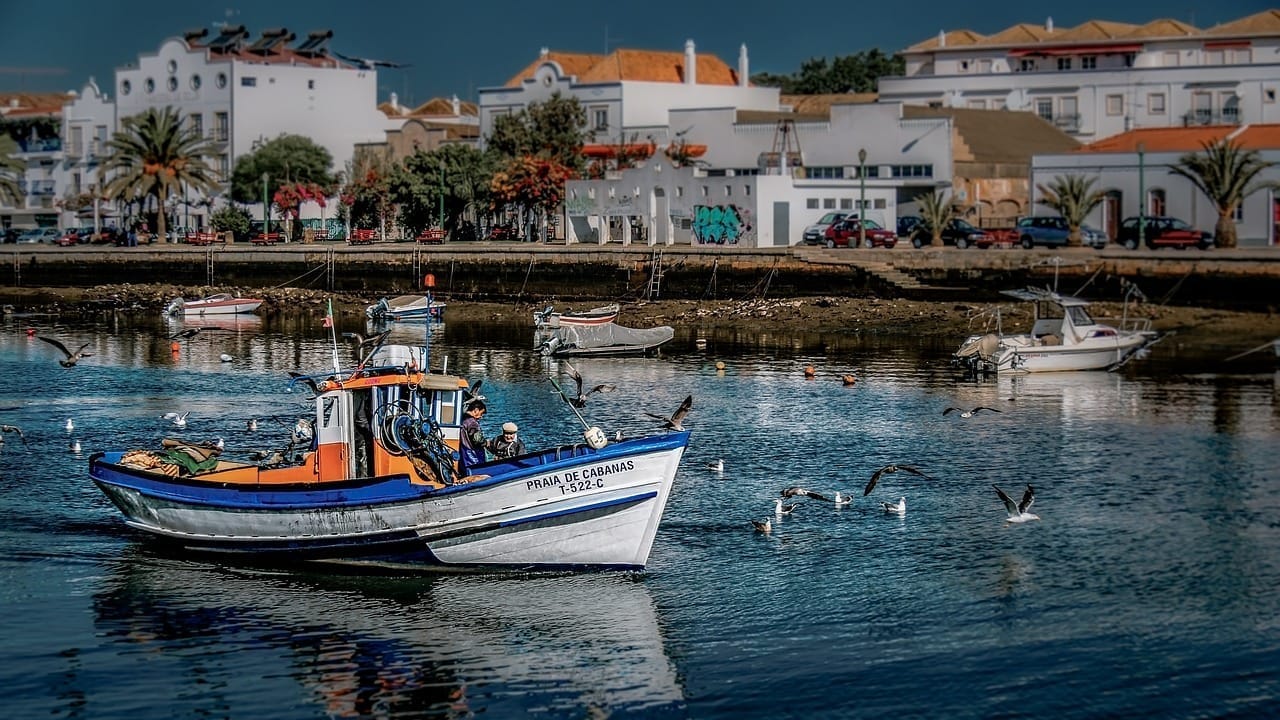
The Community Factor
One concern about off-season locations is the potential for isolation. The Algarve manages to avoid this trap through a combination of resident expatriates and year-round remote workers who specifically choose winter for its advantages.
The communities that form during the winter months tend to have higher-quality connections. You're not networking with tourists on two-week vacations. You're building relationships with people who've made similar lifestyle decisions. Co-working spaces become actual communities rather than transient collections of strangers. I've formed several valuable business relationships during winter in the Algarve, including a partnership that generated over $180,000 in revenue last year.
The Portuguese themselves appreciate the quieter winter months and become more accessible. Restaurant owners have time to chat, local business people are more open to conversations, and you can develop genuine relationships with the place rather than experiencing it as a tourist attraction.
Practical Considerations for Remote Entrepreneurs
If you're considering a winter stint in the Algarve, certain practical factors deserve attention.
Visa requirements: EU citizens enjoy unrestricted access. Americans, Canadians, Australians, and most other developed nations can stay visa-free for 90 days within any 180-day period. For longer stays, Portugal offers several options, including the D7 visa for remote workers and the relatively new digital nomad visa, which was launched in 2022. The requirements are reasonable, and the process, while bureaucratic, is manageable.
Banking and finance: Portugal's banking system functions efficiently for international transactions. Opening a local bank account is straightforward, provided you have the proper documentation. Credit cards are widely accepted, and ATMs are abundant. For business and personal operations, services like Wise and Revolut work seamlessly, allowing you to manage multiple currencies with minimal friction.
Healthcare: Portugal's healthcare system ranks highly in international comparisons. Private health insurance is affordable, with comprehensive coverage typically costing $50 to $100 per month. English-speaking doctors are available in all major towns. I've had several occasions to use both public and private healthcare facilities, and I've found the quality to be excellent and the costs to be reasonable.
Accommodation strategies: The best approach is booking directly with property owners rather than through major platforms. Websites like Idealista offer better deals and more flexibility. For a winter stay, I recommend securing accommodation for at least one month. Weekly rentals, even in winter, often carry premium pricing. Negotiate directly; owners prefer reliable long-term winter tenants over uncertain short-term bookings.
Unlock the secrets of the world's most successful entrepreneurs with the
Global Wealth Navigator Newsletter
Discover the world's best destinations offering a lower cost of living paired with an enriched quality of life with the Global Wealth Navigator Newsletter. Whether you're a retiree or an entrepreneur, we dive into strategies that open doors to international investments, tax optimizations, and discover the finest destinations offering a superior quality of life. Don't let borders or routine define you; lets find your ideal spot in the world, regardless of your income bracket.
Where to Base Yourself
The Algarve is not a monolithic region, and selecting the right base location is crucial.
Lagos offers the best balance for most remote entrepreneurs. It's large enough to have excellent infrastructure and community, but small enough to remain authentic. The old town is charming, the beaches are spectacular, and the co-working scene is well-developed. The winter population drops to about 30,000, creating the perfect balance between community and space.
Tavira appeals to those who prefer a more authentic Portuguese experience. It's beautiful, less tourism-focused, and offers a slower pace. The infrastructure is solid, although co-working options are more limited. Consider Tavira if you're comfortable working primarily from your accommodation or local cafés.
Faro offers urban advantages, including better public transportation, more diverse dining options, and easier access to the airport. It's the capital of the region and feels more like a working city than a resort town. It's a good choice for those who want year-round urban amenities, but with the advantages of Algarve weather.
Albufeira and Vilamoura undergo a dramatic transformation in winter. These summer tourist magnets become surprisingly pleasant off-season, with better infrastructure than smaller towns but significantly reduced crowds. They're worth considering if you value convenience and don't mind more tourist-oriented environments.
The Lifestyle Integration
What ultimately makes the Algarve work for winter productivity isn't any single factor. It's how lifestyle and work integrate naturally.
Exercise becomes effortless. You don't need gym memberships or exercise motivation when hiking coastal trails, surfing, or simply walking, which is naturally appealing. I average 15,000 steps daily without conscious effort, simply because walking in pleasant weather along beautiful scenery is enjoyable rather than obligatory.
Food quality improves dramatically. Fresh fish is abundant and affordable. Vegetables and fruits from local markets are superior to supermarket equivalents. The Portuguese approach to dining is quality ingredients, simple preparation, and reasonable portions. This promotes healthier eating habits than the grab-and-go cultures common in tech hubs.
Stress reduction isn't just pleasant; it's measurable. My resting heart rate dropped 8 BPM during my first winter in the Algarve. Sleep quality improved significantly, averaging 7.5 hours nightly compared to 6.2 hours in Seattle. These aren't trivial lifestyle improvements. They directly impact cognitive performance and the quality of decision-making.
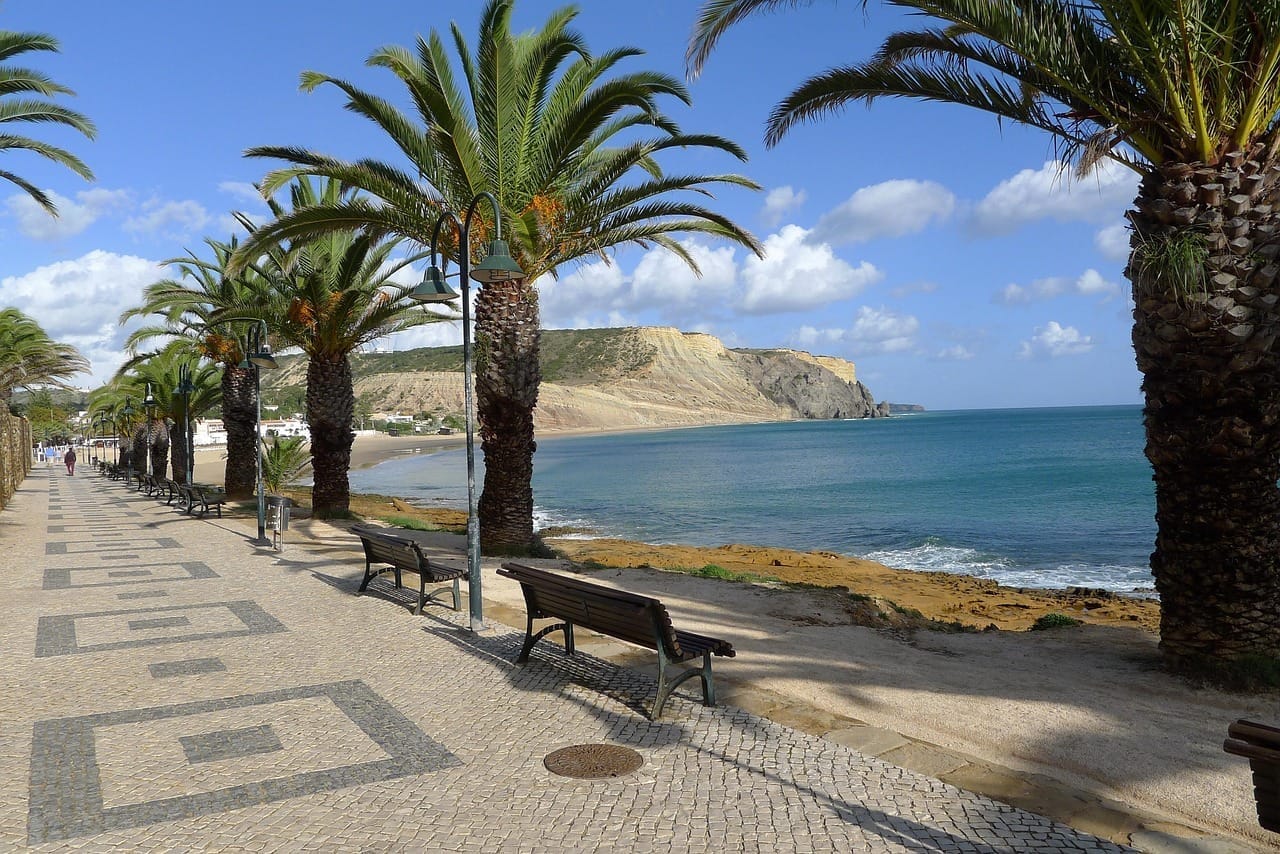
The Business Case
Let me be clear about the business argument for this choice. Spending winter in the Algarve isn't about vacation or escape. It's about optimizing your operating environment for maximum output.
The cost savings are substantial. Comparing my winter expenses in the Algarve versus San Francisco, I save approximately $3,500 per month while enjoying a superior quality of life. That's $42,000 annually that flows directly to business reinvestment, savings, or additional lifestyle improvements.
Productivity gains compound. Even a conservative 15% improvement in focused work hours, which aligns with my tracked metrics, represents significant value. For a consultant billing $200 per hour, that's approximately 24 additional billable hours per month, or $57,600 annually.
Health improvements reduce long-term costs and risks. Better sleep, more exercise, reduced stress, and increased vitamin D exposure aren't lifestyle luxuries. They're business investments that pay dividends across decades.
Strategic positioning offers unexpected advantages. When you operate from a location that most of your competitors haven't considered, you gain a perspective advantage. You're not caught in the echo chambers of Silicon Valley or other tech hubs. You have time and space to think differently, which is valuable for strategic decision-making.
The Contrarian Perspective
I should acknowledge the counterarguments. The Algarve in winter may not be for everyone, and pretending otherwise would be dishonest.
If you require daily face-to-face collaboration, this approach is not suitable. Video calls are excellent, but they're not identical to in-person interaction. If your business model requires a physical presence in specific locations, this is obviously a non-starter.
Cultural and language barriers exist. While English is widely spoken in tourist areas, functioning in daily life requires some Portuguese or patience. Banking, bureaucracy, and local services operate on Portuguese timelines and methods, which can be frustrating for those accustomed to Anglo-American efficiency.
The ocean is cold. If you're imagining tropical beach swimming, adjust expectations. Winter water temperatures hover around 15-17°C (59-63°F). Surfers wear wetsuits. Most beach time involves walking rather than swimming, though the brave do swim year-round.
The weather isn't perfect. The Algarve may have the best winter weather in mainland Europe, but that doesn't mean endless sunshine. You'll experience rainy periods, occasional gray days, and winds. It's dramatically better than Northern Europe, but it's not as good as the Canary Islands or Thailand.
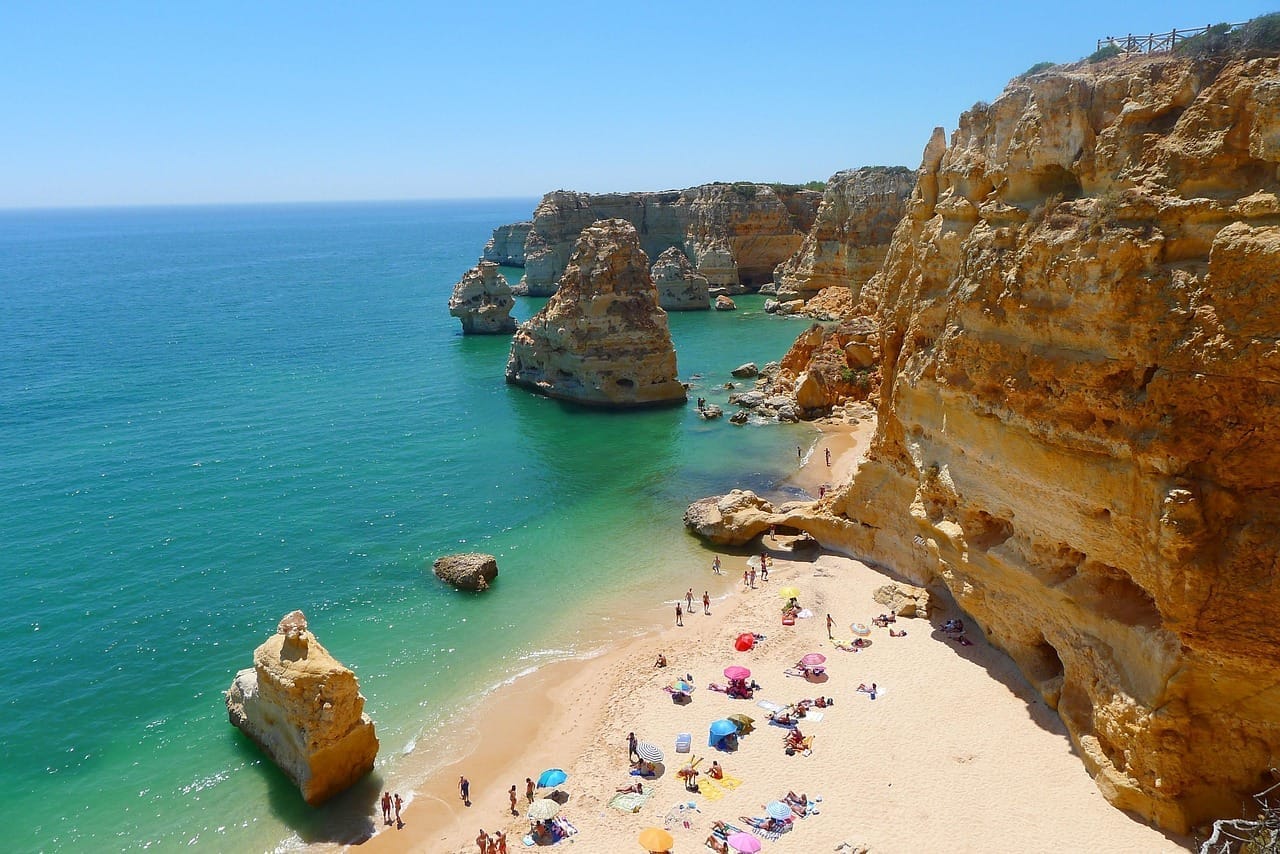
Making the Decision
The decision to spend winter in the Algarve should be based on an honest assessment of your work requirements, lifestyle preferences, and risk tolerance.
This approach is most suitable for individuals with established remote businesses, reliable income streams, and work that can be performed remotely without requiring a physical presence. If you're still building credibility, establishing client relationships, or need to be physically present for your work, defer this option until your business model supports location independence.
Start with a trial period. Book accommodation for one month, ideally January or February. This gives you an authentic experience without excessive commitment. Pay attention to your actual productivity metrics, not just how you feel. Track your work output, client satisfaction, and business results. If they improve or remain steady while your quality of life increases significantly, you have your answer.
Consider your personal situation carefully. If you have family commitments, school schedules, or other constraints, the logistics become more complex. However, many remote entrepreneurs successfully bring their families to the Algarve for the winter months. International schools are typically located in larger towns, and the lifestyle benefits extend to both children and adults.
The Bigger Picture
Beyond the specific advantages of the Algarve, this discussion highlights a broader shift in how we perceive work and location. The assumption that you must endure bad weather, high costs, and urban stress to run a successful business is increasingly obsolete.
Technology has created opportunities for strategic location choices that previous generations couldn't consider. The question isn't whether it's possible to work effectively from the Algarve in winter; clearly it is. The question is whether you're willing to challenge conventional assumptions about where and how work should happen.
For remote entrepreneurs and location-independent professionals, winter in the Algarve represents not just a pleasant option but a potential competitive advantage. Lower costs, better health, improved productivity, and enhanced quality of life aren't lifestyle luxuries. They're business assets that compound over time.
The truly successful entrepreneurs I know aren't those who work the longest hours or make the greatest sacrifices. They're the ones who engineer their environments to support sustainable high performance. They recognize that where you work matters as much as how you work.
Taking Action
If this resonates with you, start planning now for next winter. Research accommodation options, review visa requirements, and honestly assess whether your business model supports this choice. Join digital nomad forums and Facebook groups focused on the Algarve to ask questions and learn from others' experiences.
For those ready to take the leap into Portuguese living, our Move to Portugal Masterclass provides comprehensive guidance on navigating visas, finding accommodation, understanding the tax system, and building a life in Portugal. It's designed specifically for remote entrepreneurs and includes the practical details that make the difference between frustrating bureaucracy and a smooth transition.
The Algarve in winter may not be the ideal choice for everyone. But for remote entrepreneurs seeking optimal conditions for productivity, health, and cost-effectiveness, it's challenging to identify superior alternatives. Sometimes, the best competitive advantage is simply being smart enough to work from a location your competitors haven't considered.
Ready to make your move to Portugal?
Our comprehensive
'Move to Portugal Masterclass'
This online course covers everything you need to know—from visa applications and tax planning to finding housing and building your local network. Learn from entrepreneurs who've successfully made the transition and avoid costly mistakes.
Written by Tom Reynolds
Tom left Seattle for Lisbon’s startup-friendly vibe. A tech entrepreneur, he writes about innovation, tax incentives, and digital business in Portugal. His forward-thinking articles appeal to entrepreneurs designing borderless lives and location-independent companies.
📍 From Seattle, now in Lisbon
Tom explores Portugal’s tech scene and lifestyle for digital entrepreneurs. His articles blend innovation with freedom of location.
Read Articles by Tom →
Global Citizen Life
© 2023 Global Citizen Life
All rights reserved
